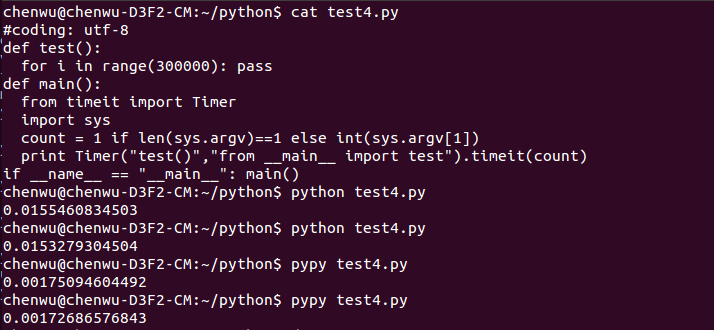python 实现敏感词过滤的方法
如下所示:
#!/usr/bin/python2.6
# -*- coding: utf-8 -*-
import time
class Node(object):
def __init__(self):
self.children = None
# The encode of word is UTF-8
def add_word(root,word):
node = root
for i in range(len(word)):
if node.children == None:
node.children = {}
node.children[word[i]] = Node()
elif word[i] not in node.children:
node.children[word[i]] = Node()
node = node.children[word[i]]
def init(path):
root = Node()
fp = open(path,'r')
for line in fp:
line = line[0:-1]
#print len(line)
#print line
#print type(line)
add_word(root,line)
fp.close()
return root
# The encode of word is UTF-8
# The encode of message is UTF-8
def is_contain(message, root):
for i in range(len(message)):
p = root
j = i
while (j<len(message) and p.children!=None and message[j] in p.children):
p = p.children[message[j]]
j = j + 1
if p.children==None:
#print '---word---',message[i:j]
return True
return False
def dfa():
print '----------------dfa-----------'
root = init('/tmp/word.txt')
message = '四处乱咬乱吠,吓得家中11岁的女儿躲在屋里不敢出来,直到辖区派出所民警赶到后,才将孩子从屋中救出。最后在征得主人同意后,民警和村民合力将这只发疯的狗打死'
#message = '不顾'
print '***message***',len(message)
start_time = time.time()
for i in range(1000):
res = is_contain(message,root)
#print res
end_time = time.time()
print (end_time - start_time)
def is_contain2(message,word_list):
for item in word_list:
if message.find(item)!=-1:
return True
return False
def normal():
print '------------normal--------------'
path = '/tmp/word.txt'
fp = open(path,'r')
word_list = []
message = '四处乱咬乱吠,吓得家中11岁的女儿躲在屋里不敢出来,直到辖区派出所民警赶到后,才将孩子从屋中救出。最后在征得主人同意后,民警和村民合力将这只发疯的狗打死'
print '***message***',len(message)
for line in fp:
line = line[0:-1]
word_list.append(line)
fp.close()
print 'The count of word:',len(word_list)
start_time = time.time()
for i in range(1000):
res = is_contain2(message,word_list)
#print res
end_time = time.time()
print (end_time - start_time)
if __name__ == '__main__':
dfa()
normal()
测试结果:
1) 敏感词 100个
----------------dfa----------- ***message*** 224 0.325479984283 ------------normal-------------- ***message*** 224 The count of word: 100 0.107350111008
2) 敏感词 1000 个
----------------dfa----------- ***message*** 224 0.324251890182 ------------normal-------------- ***message*** 224 The count of word: 1000 1.05939006805
从上面的实验我们可以看出,在DFA 算法只有在敏感词较多的情况下,才有意义。在百来个敏感词的情况下,甚至不如普通算法
下面从理论上推导时间复杂度,为了方便分析,首先假定消息文本是等长的,长度为lenA;每个敏感词的长度相同,长度为lenB,敏感词的个数是m。
1) DFA算法的核心是构建一棵多叉树,由于我们已经假设,敏感词的长度相同,所以树的最大深度为lenB,那么我们可以说从消息文本的某个位置(字节)开始的某个子串是否在敏感词树中,最多只用经过lenB次匹配.也就是说判断一个消息文本中是否有敏感词的时间复杂度是lenA * lenB
2) 再来看看普通做法,是使用for循环,对每一个敏感词,依次在消息文本中进行查找,假定字符串是使用KMP算法,KMP算法的时间复杂度是O(lenA + lenB)
那么对m个敏感词查找的时间复杂度是 (lenA + lenB ) * m
综上所述,DFA 算法的时间复杂度基本上是与敏感词的个数无关的。
以上这篇python 实现敏感词过滤的方法就是小编分享给大家的全部内容了,希望能给大家一个参考,也希望大家多多支持【听图阁-专注于Python设计】。


